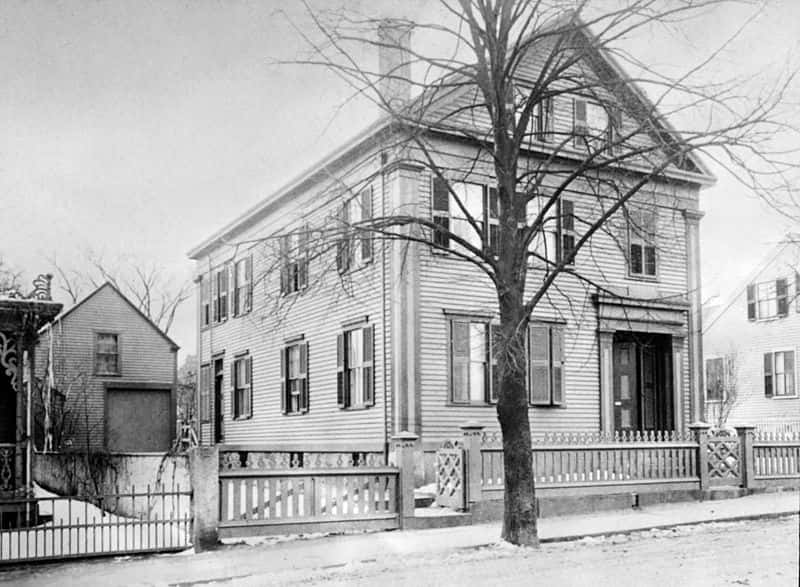'The Curious Life and Death of...': Who was Lizzie Borden? Meet the ax murderer who inspired a nursery rhyme

On a hot day in August 1892, two members of high-class society in Fall River, Massachusetts, Andrew Borden and his wife, Abby Borden, were found hacked to death with a hatchet. The main suspect for the murders was Andrew's unmarried 32-year-old daughter, Lizzie Borden. Lizzie went on to be acquitted by the Commonwealth of Massachusetts, but the newspapers and the public found the case so fascinating that it has remained a top interest even today, inspiring a children's nursery rhyme that goes, "Lizzie Borden took an ax, and gave her mother forty whacks; when she saw what she had done, she gave her father forty-one."
Smithsonian Channel's new series 'The Curious Life and Death of...' takes a look at mysterious deaths and murders from history and premieres on Sunday, September 6, with the subject of their first episode being Lizzie Borden. Read on to know more about the case that has been compared to the OJ Simpson trial and still rouses public interest today. Andrew was discovered in a pool of blood on the living room couch, his face nearly split in two on August 4, 1892, while Abby was found upstairs, her head smashed to pieces, and as the nursery rhyme goes, it was discovered that she was killed first. Right from the start, the double-homicide piqued everyone's interests so much that the crime scene was tampered by thousands of curious townspeople who wanted to see what went down.
The Lizzie Borden case was probably the first case that saw the media so closely involved in its proceedings. Rolling Stone magazine writes that the case was often sensationalized, featuring instances such as Lizzie fainting when the heads of her step-mother and father were brought in for evidence, or if a day was dry, the press would comment that she was yawning or looked bored, painting a picture of a cold murderer who perhaps could not care less — the latter tactic which is still used in modern media.

In the months before the murders, tensions had been brewing in the Borden household. Lizzie reportedly believed that Abby had married Andrew for his wealth and in the month before, Lizzie and her sister, Emma, had taken extended vacations due to the tensions. When Andrew began gifting real estate to members of Abby's family, the sisters demanded and received a rental property.
Lizzie claimed she was in the barn at the time of the murders and entered the house later that morning to find her father dead in the living room. Meanwhile, the only other person at the house was Bridget Sullivan, the Bordens' live-in maid, who was resting after washing windows and getting sick from a spoiled mutton stew. The evidence that was presented at the case was circumstantial, like that she tried to buy poison from a local drugstore on the day before the murders, or that she burned one of her dresses several days after the murder. The lack of proper evidence — there was no blood found on Lizzie — and her background as an upper-class White woman convinced the all-male jury that she was incapable of the gruesome crime and they quickly acquitted her.
Nevertheless, the case would continue to follow Lizzie and her sister, Emma throughout their lives — both of them remained unmarried and while they lived together in Fall River following the murders, Emma soon left after the sisters had an argument over a party. Lizzie, who wanted to be called Lizbeth after the murders, was ostracized from society after the murders. Lizzie and Emma died within days of each other, the former in Fall River, the latter in New Hampshire, where Emma had moved following the publication of another book about the murders.
'The Curious Life and Death of...' premieres on Smithsonian Channel on Sunday, September 6, at 9/8c.










